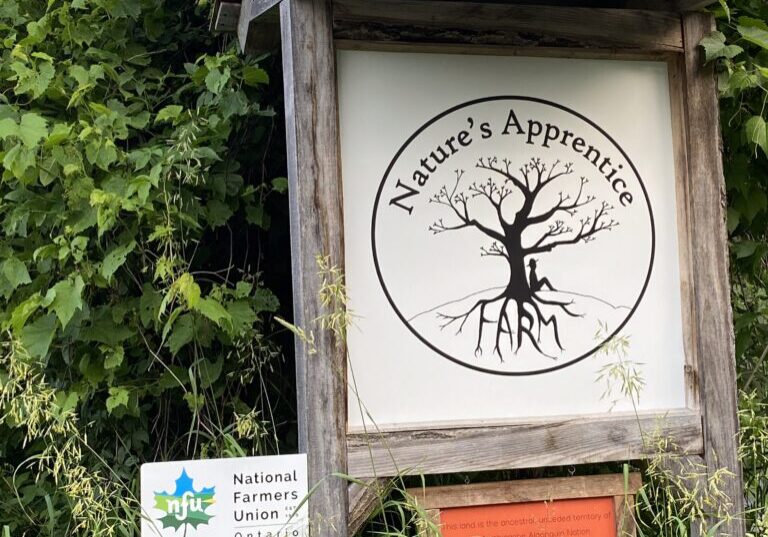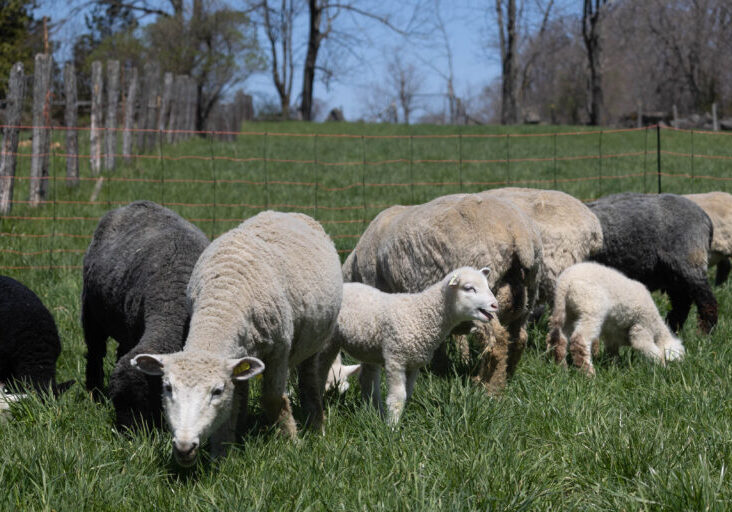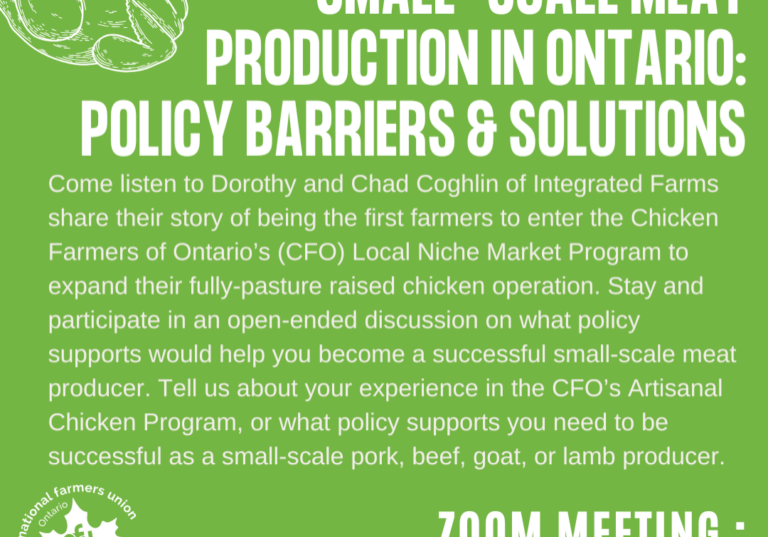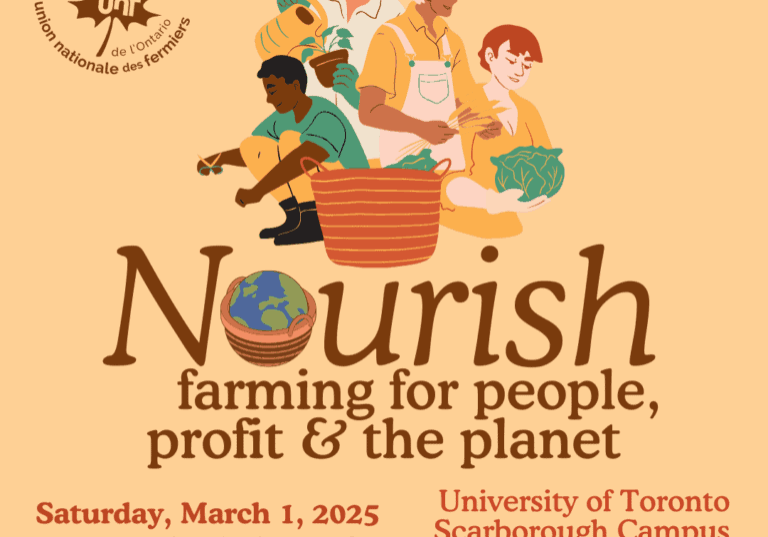Genetic Modification: New developments a concern for farmers?

National Farmers Union – Ontario Newsletter
The Rural Voice | April 2023
Farm papers are full of articles about possible new genetically modified (GM or genetically engineered) products from gene editing techniques like CRISPR-Cas9. Some of these ideas may never work, but it looks like gene editing could achieve more than genetic modification so far. If every organism can now be genetically modified, it seems like every problem could now have a genetically modified solution.
The National Farmers Union Ontario – Local 320 (Bruce), in partnership with the Canadian Bio- technology Action Network (CBAN), will host a discussion on April 15 about GM seeds and foods with the question: “What’s next?”, followed by a talk on April 29 about the risks of genetically engineered trees. As the technology and regulation of genetic modification changes, join us to get up-to-date information and share your analysis. More details about these events can be found on the banner below.
Soon: Unknown GM Seeds?
A federal government decision could soon make finding out whether seeds have been genetically modified more complicated, maybe even impossible. The livelihoods of organic farmers and farmers who sell into GM-sensitive markets could be at risk.
The Minister of Agriculture and Agri-Food could soon decide to allow some genetically engineered seeds onto the market with no government environmental safety assessments and no notification to farmers. This decision would allow companies to sell some GM seeds without disclosing that they have been genetically engineered – seeds that have not gone through any government approval process.
The Canadian Food Inspection Agency (CFIA) is proposing that companies can voluntarily list these new GM seeds instead of being compelled to disclose them through regulation.
Specifically, this decision would remove government oversight of GMOs that have no foreign DNA, produced through gene editing techniques. Plant developers would determine the safety of their own products and decide whether farmers and the government will get a notification of these new GM seeds.
The NFU is asking farmers to contact the minister to demand transparency. On March 9, SaskOrganics held a Day of Action asking organic farmers to send the message: “No Hidden GM Seeds.” More information about this can be found at: www.cban.ca/NoExemptions
Are GM insects next?
The new tool of CRISPR-Cas9 makes more organisms accessible to genetic engineering, and makes the process faster. This means that GM insects are close.
One promise is to replace insecticides by genetically modifying pests, like fruit flies, to create sterile populations in the wild. This is not so far away. In November 2022, the federal government announced it’s considering approving a GM fruit fly – the “EntoEngine” – to be a “living insect bioreactor” producing proteins for use in the process of making “cellular meat.”
In the case of GM insects, it’s Environment and Climate Change Canada that would conduct a risk assessment, without public participation. We may not know about the next GM insect under review because notifying the public is a voluntary decision left to the product developer.
Are GM trees coming to Ontario?
Very soon, the CFIA could be responsible for assessing a request to release the first genetically modified tree into the wild, in Ontario.
U.S. researchers are asking for approval in the U.S. to plant a GM blight-tolerant American chestnut tree, called the “Darling 58”, and say they will also seek approval to release it in Canada. They’re proposing to use this GE tree to replace or “restore” the endangered American chestnut species, decimated by a blight disease. They claim that this transgenic tree will be able to spread blight-tolerance to subsequent generations by cross- pollinating with wild American chestnuts.
However, the release of this GM tree would come with great risks, and it could threaten the decades-long efforts of chestnut conservationists in Ontario who are working to recover the wild American chestnut using non-GM methods.
There have been many developments since the roll-out of the first herbicide-tolerant canola, and genetic engineering now seems poised to take off. But if we don’t even know which new seeds are GM, will farmers and consumers get a say?
Join us for these two events in Bruce county as we take up these important questions and discuss the reality and risks of GMOs.
For more information, visit: https://cban.ca/events/
– Lucy Sharratt is the Coordinator for the Canadian Biotechnology Action Network (CBAN)
Click here to view the PDF version.
A subscription to The Rural Voice is one of the benefits of being an NFU-O member








